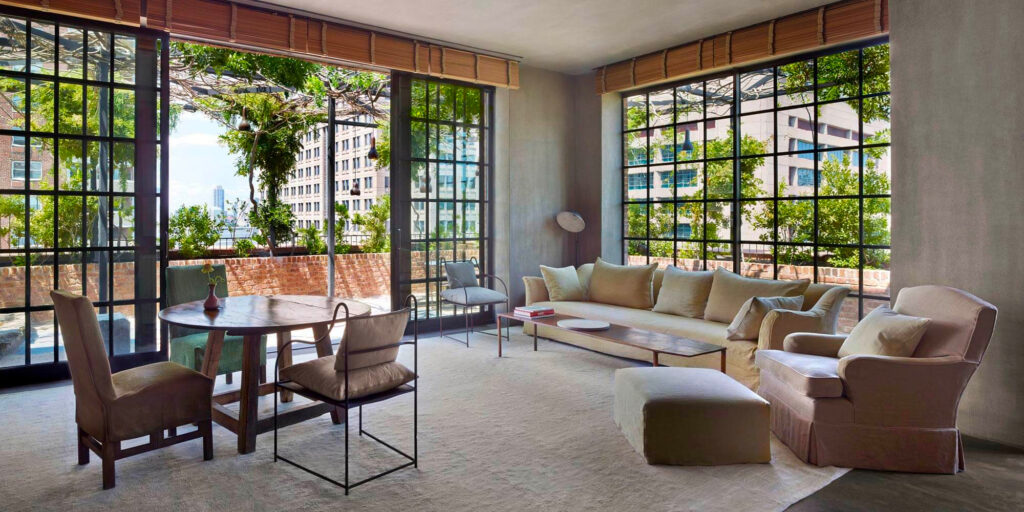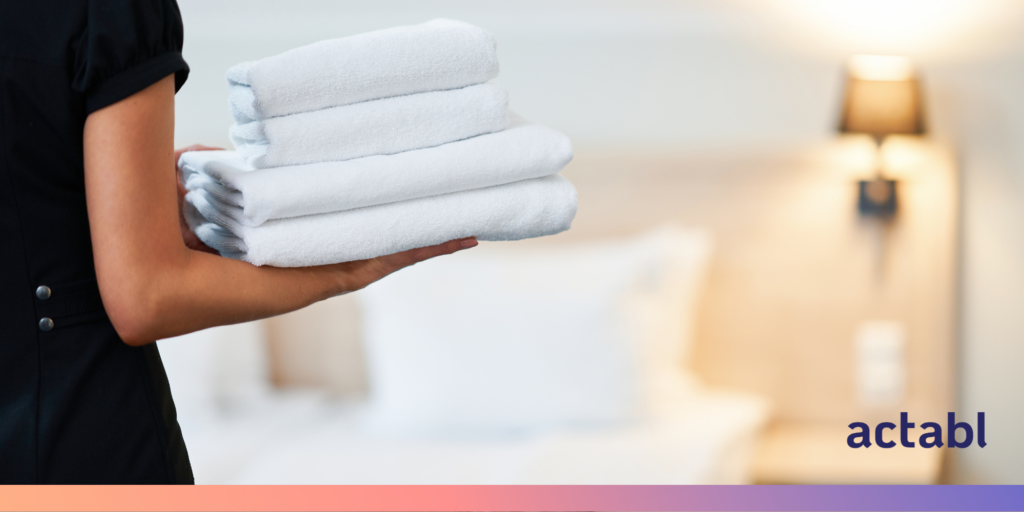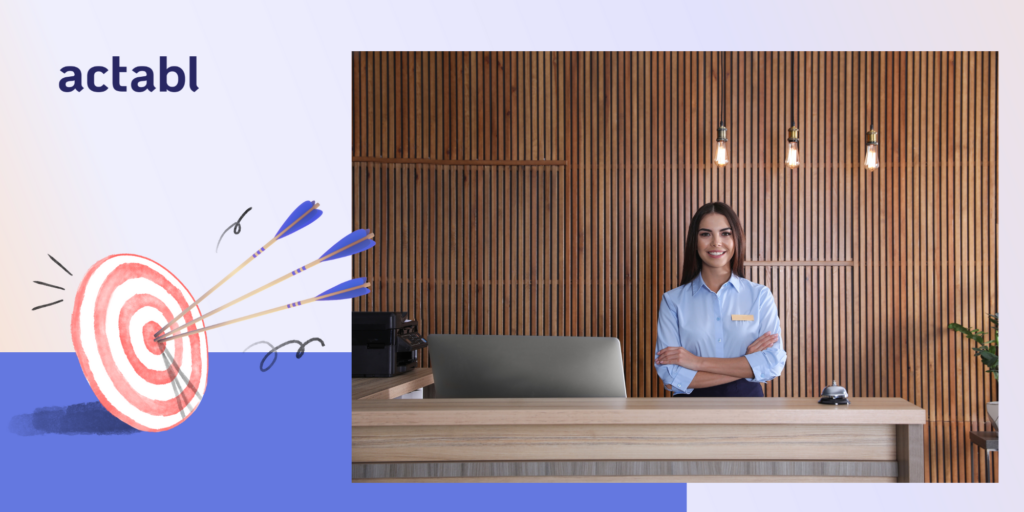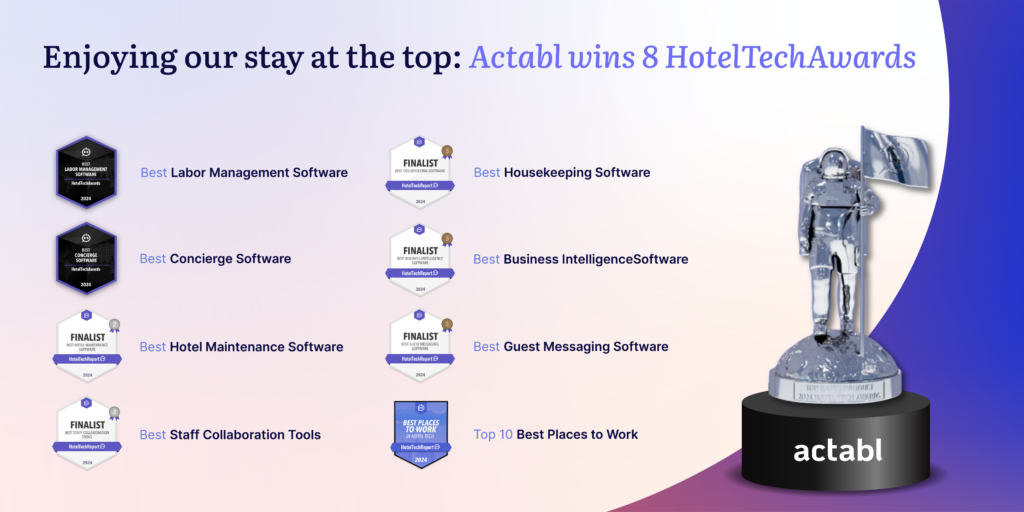
ALICE, Alta Integration Proving Successful for The Greenwich Hotel
Guests lucky enough to check into New York’s Greenwich Hotel have a new way to contact the front desk and request services from staff. The famous hotel, a “TriBeCa oasis,” and multiple Travel + Leisure award recipient, has gone digital, enabling guests to communicate with staff using a tablet conveniently included in every room.
Thanks to a partnership between The Greenwich Hotel, tablet provider Alta, and hotel operations platform ALICE, guests can now request services and amenities from the hotel as well as discover anything they need to know about the surrounding neighborhood, all without having to stop by the front desk or pick up a phone.
While many hotels have found guests to be reluctant to download their app, The Greenwich has seen industry-high engagement rates of over 80% since the launch of the program in the summer of 2016. Additionally, it seems that guest spend for items available through the application, such as room service, are up.

General Manager Philip Truelove says part of what makes this technology implementation so successful is that digital communication is being positioned as a choice for the guest—the tablet is not replacing any other means of hotel communication that a guest might prefer. In fact, guests might not even notice the tablet in their room. Unlike other in-room tablet providers with more obtrusive hardware, Alta has designed a fabric cover and case for their tablet that tastefully and discreetly matches the decor of the room.

Each tablet comes pre-loaded with the Alta app branded for the hotel, which makes requests for a variety of services easy and intuitive. These include room service, a curated neighborhood guide, digital newspaper and magazine subscriptions, and dinner and spa reservations. Guests can also download the Alta application to their own mobile devices for continuous access to all of these same services, regardless of whether they’re sitting in the lobby or dining off-property—before, during, and after their stay.
For Truelove, providing guests with a digital way to get in touch with hotel staff and learn about hotel offerings makes a lot of sense. “Providing our guests with this technology is a way for us to keep pace. I have a 13 year old daughter, and I can see having this constant connectedness is undoubtedly the way of the world.” But he insists that adding these in-room tablets and leveraging the Alta-ALICE integration isn’t changing anything about the business of hospitality itself. “We haven’t changed what we offer the guest. You can still order room service, you have the same menu, and you can still pick up the phone,” he says. “This isn’t about replacing human interaction, it’s about enhancing it. If the guest messages the front desk, it’s still interaction, just through a modern channel.”
It’s clear Truelove and his staff have put a lot of thought into the best way to introduce technology to their guests. When Alta first approached Truelove with the idea of offering guests their application, it raised a lot of questions, he said. Chief among them was, would digital communication result in less staff contact with guests? But, through a gradual roll-out of the technology, and input from Truelove and his team at every turn, the general manager’s reservations were quickly allayed: “Technology can be a nightmare—it can be too clever for its own use. But as a sceptic, I have to admit that the introduction of Alta has proved a point: it can work and work well!”
Beyond the value this partnership between Alta and ALICE offers his guests, Truelove also understands the collaboration means his staff are being provided with a system optimized for communication and task management. Because requests placed by guests via the Alta application come to staff via ALICE, his staff only has to work with one system, instead of the two they would have to juggle between if the products weren’t integrated. As it happens, logging into and working with multiple technology systems is something that plagues the hospitality industry generally.
Indeed historically, hospitality technology has been built in a silo. Housekeeping typically works with one specific (and closed) system, maintenance with another. The front desk is typically the department tasked with interfacing between all these different systems and, of course, doing all this while helping guests. And with the proliferation of guest-facing applications in recent years, this problem of having to log into multiple different systems so as not to miss any work orders or guest requests has only become more acute. The prevalence of radios and walkie-talkies in many hotels is, in most cases, an attempt to bridge these gaps caused by fragmented technology.
Rita Dutra, The Greenwich’s head of housekeeping is proud to report, post-ALICE, that all her department’s radios have now been replaced with smart devices. The same goes for the rest of the The Greenwich staff, who are now united on the same technology platform, with all the improvements in communication and accountability that affords. Says Dutra, “Alta and ALICE have made things easier for [the housekeeping staff] in every single way. It’s easier to talk between each other and we save a lot of time that was previously spent with phone calls, checking computers, and running between the housekeeping department and the front desk.”
When a guest at The Greenwich makes a request of housekeeping (commonly-requested services include shoeshine and laundry pickup), the request comes through to the housekeeping team as a “ticket.” Whomever on the team is assigned to that particular part of the building or that particular service is then alerted to the request on their mobile device (all of The Greenwich’s housekeeping staff have traded their noisy radios for mobile devices running the ALICE application, which allows them to accept requests and manage their work on the go). Once the staff member has completed the task, they indicate its completion by closing the ticket in the ALICE app on their device, which then updates the guest in the Alta application. The result is a seamless exchange of information between hotel staff and guests, setting a new standard of accountability, transparency and convenience in the delivery of hospitality.

This new way for guests to interact with The Greenwich and for staff to do their work is made possible by a strategic partnership between Alta and ALICE, forged through complementary technology. The story of the partnership is, in fact, a funny one, since both technology vendors actually came to The Greenwich separately. Alta was bought for its guest-facing, in-room technology, while ALICE was selected for its ability to streamline staff communications and task management behind the scenes. With both companies launching their technology within a few months of each other, it didn’t take long for Alta and ALICE to learn about each other’s presence at the hotel.
“When Alex [Shashou, ALICE’s President] said we had complementary technologies and suggested we integrate, I was initially skeptical, because I thought we were competitors,” said Nicholas Wirth, one of Alta’s co-founders and its CEO. “It turns out Alex was right.”
Indeed, while ALICE has a guest-facing app as part of its platform of hotel technologies (and launched as just a guest app back in 2013), the emphasis for the company in recent years has been on the staff-side of the platform. ALICE’s mission is to streamline fragmented back of house technology to improve staff task management and improve the guest experience. Recognizing that its technology strength lies in improving staff operations, ALICE recently unveiled its API, specifically built for integrations with companies like Alta, which excel in other parts of the hotel experience. The ALICE API is what makes the integration between Alta and ALICE possible.
“Alta has figured out what makes for a great user experience,” says ALICE’s Shashou. “It’s one thing to offer guests an app to download, but quite another to literally put the app into the guests’ hands via this in-room tablet as Alta has done. When we learned about their technology we saw a way to improve how guest requests make their way to hotel staff through our API and together improve the experience for the guests at The Greenwich.”
While the value of this partnership to guests and staff is evident, both companies have also benefitted from working with one another. With Alta, ALICE’s first hardware partner, ALICE had a great opportunity to work through the kinks of their brand new API. And Alta has appreciated partnering with and learning from a company a couple years further along in their entrepreneurial journey. It’s also helped that both companies are similarly obsessed with client support and the guest experience.
“If we could spend 100% of the day going from hotel to hotel, checking in on clients, we would,” says Sebastian Bland, who leads Alta’s business development efforts. “As a boutique tech company, it’s all about relationships. Our product is the front end, so being fanatical about the guest experience is essential.”
And the Alta and ALICE synergies don’t stop at their technology. Both teams have similar DNA—a mix of hospitality expertise and valuable outsider perspective. Alta’s CEO Wirth is a sixth-generation hotelier, hailing from a famous Swiss dynasty known for pioneering the hotel industry in Europe. He has spent his own career opening and running hotels across several continents, thoroughly absorbing what makes for a superior guest experience. His co-founder, Jonathan Teng, has also infused the Alta product with lifelong observations of hospitality, as he grew up in a hotel family as well. His father, Ted Teng, has been president and CEO of The Leading Hotels of the World since 2008, and prior to that led the growth of some of the world’s most prominent hotel brands.
The company’s other two co-founders, Saumil Shah and Sebastian Bland, bring an important outsider’s view to the product. Shah’s engineering expertise and Bland’s finance background have helped the team ramp up the product in a very short amount of time, which has allowed them to quickly and quietly rack up luxury hotel clients across New York City and the United States.
ALICE has also leveraged an expert team with family hotel experiences to their advantage. Shashou was raised in hotels—his father grew the Malmaison and Hotel du Vin brands in the UK where Shashou is from. His co-founder and ALICE CEO, Justin Effron, comes from a family of dealmakers. ALICE’s third co-founder, fellow UPenn alum, and company CTO Dmitry Koltunov has been essential in turning a fledgling guest app into a robust technology platform. ALICE, which was live in under 200 hotels at the start of 2017, has seen massive growth over the past few quarters. With the company’s recent acquisition of concierge technology rival GoConcierge, it will be in over 1,500 hotels by October.







